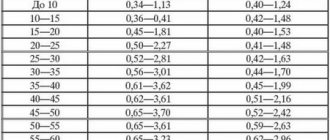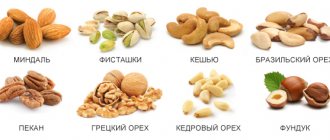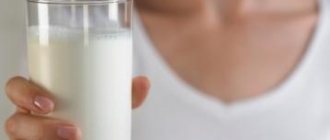03/30/2018 Category: Nutrition for a nursing mother Author: Natalia Kiseleva
During the postpartum period, women often experience not only positive emotions from motherhood and worries about the birth of a baby, but also realize a not very pleasant fact - their body has undergone certain changes, not for the better, pregnancy and childbirth do not pass without a trace for anyone. Excess weight, the appearance of which is inevitable during pregnancy, becomes the main point of the transformations that have occurred. And, of course, any woman at this stage compares herself with her previous “version” and wants to return to her former form as much as possible, or even improve it. And everything would be fine - a simulator and a standard diet would help. But this is for new mothers who, for one reason or another, have given up breastfeeding. What about the rest? How to choose the right diet for weight loss for a nursing mother, what contraindications may there be, or perhaps you should wait until lactation ends? Let's try to figure it out.
- What nutritionists advise nursing mothers
Diets for breastfeeding: characteristics, features, pros and cons - table - Sample menu for every day - table
- How to lose weight after childbirth - video
Weight loss during childbirth
Immediately after the birth of the baby, the woman in labor loses approximately 7–10 kg in weight. This is approximately the weight of the baby, the placenta and the amniotic fluid that leaves the woman’s body during childbirth. Further weight loss occurs due to the loss of excess fluid if edema appears during pregnancy. Breastfeeding also leads to weight loss if the mother does not overeat during this time. The previous weight returns gradually, which takes about a year .
Judging by the reviews of women in labor, the process of weight loss is so individual that it is impossible to say for sure in each case how this process will go.
Harmful products
There is a list of products that are prohibited or consumed with caution for nursing mothers. These include:
- alcohol;
- fatty, fried, spicy, salty foods;
- fast food, canned food;
- carbonated drink;
- caffeinated drinks;
- spices;
- honey, confectionery;
- products that are obligate allergens, i.e. most often causing allergic reactions (chocolate, citrus fruits, strawberries, seafood, etc.).
Alcoholic drinks
There is no amount of alcohol that could be considered safe for a child’s body. If a nursing mother has consumed even a sip of alcohol, it is necessary to avoid breastfeeding until the alcohol level in breast milk drops to zero. Expressing milk from the breast will not speed up the elimination of alcohol from a woman's body. In this case, you need to think about this in advance and give the baby milk that was expressed before drinking alcohol [8].
Caffeine
Mother's consumption of more than 2-3 cups of caffeine-containing drinks per day has a negative impact on the child's body. This may disturb the baby's sleep. However, studies have shown that only about 1% of the caffeine consumed by a woman passes into breast milk [6]. This means that a breastfeeding woman can drink up to 200 mg of caffeinated drinks per day. A prerequisite is to take into account all sources of caffeine in the daily diet (tea, coffee, etc.).
Fish
Eating fish during breastfeeding is beneficial for both mother and baby. However, you need to remember that fish should not contain heavy metal compounds, such as mercury. High levels of mercury have been found in fish species such as swordfish, shark and mackerel. Although only a small amount of mercury passes into breast milk, it is enough to harm a baby's health.
Diet while breastfeeding
If a woman is healthy and does not experience any problems, then there is no need for diets. You just need to adhere to the principles of proper nutrition: it must contain the required amount of proteins, fats and carbohydrates . Sometimes pediatricians recommend a diet for nursing mothers in the first month if the newborn is allergic to a certain substance. The need for a diet also arises if the mother suffers from constipation during the feeding period.
How to choose a diet for weight loss so as not to harm yourself and your child
Let's talk about the features of the diet during breastfeeding. A strict diet with a significant reduction in calorie intake during this period is impossible. Modern dietetics offers a variety of nutritional systems that help reduce weight without harming the baby or lactation.
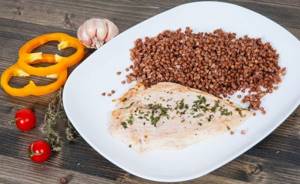
A nursing woman's diet should be balanced
The mother's diet should first of all consist of foods that will not have an undesirable effect on the child's body . Main menu characteristics:
- Meals should be small and frequent: small portions five to six times a day.
- Compliance with the drinking regime: it is advisable to drink before each feeding.
- Adequate protein intake. We’ll talk about what happens in a woman’s body due to a lack of this element a little later, in the “Diet for Diastasis” section.
- Mandatory intake of vitamins.
Recommendations for a nursing woman who wants to lose weight
Women, no matter what, always want to look great. Quickly returning to your previous form is not so difficult if you listen to the advice of nutritionists and adhere to the following dietary practices:
- calorie intake should be at least 1800 kcal per day;
- do not eat flour and fried foods;
- between meals, drink 1 glass of clean water;
- last meal three hours before bedtime;
- maintain optimal physical activity.
If you have gained a lot of weight, the process of losing it may take 7-9 months. Using a diet and regular exercise will help you achieve the desired result.
Answers to popular questions:
- How to lose 10 kilograms? To fulfill my cherished desire, I will need more time and effort to lose 10 kilograms. You will have to go on a strict but effective diet. You can only cook from approved products. The following are subject to restrictions: beef, meat broths, wheat and products made from wheat flour. In order for such a diet to be hypoallergenic, foods that cause allergies are also excluded.
- How to lose weight by 20 kilograms or more? It is better to postpone weight loss of 20 kilograms or more until the end of the breastfeeding period. And carry it out under the guidance of specialized specialists.
- Is a diet necessary for diastasis? During pregnancy, stretching causes the abdominal muscles to change position and diastasis may occur. The connective tissues are stretched, which leads to protrusion of the abdomen. This problem can be solved with diet, special exercise and massage. For diastasis, a protein diet will be effective.
Particular attention in the diet for diastasis should be given to daily protein intake. After all, it is the building material for muscles.
Do breastfeeding mothers need more calories?
Breastfeeding women are recommended to increase their daily caloric intake by 450-500 additional kcal per day. Thus, for nursing mothers, the calorie content of food should be on average 2300-2500 kcal per day, while for ordinary, non-pregnant, moderately active women this figure is 1800-2000 kcal [1]. There is no need to be afraid: additional calories are wasted on milk production by the mammary glands.
If a woman wants to lose weight while breastfeeding, this should be done gradually. Drastically cutting calories, limiting certain food groups, or doing vigorous exercise can all reduce the amount of milk you produce or reduce the quality of your milk. On the other hand, a healthy diet aimed at providing the body with the necessary nutrients and energy will help maintain lactation at the required level and eliminate excess weight.
Diet basics and sample menu
A nursing woman's daily food list includes meat or fish, cereals, dairy products, vegetables and fruits. It’s up to you to decide what meats and grains to eat. To lose weight, it is advisable to eat low-fat foods. Sugar is obtained from sweet fruits. We eat vegetable salads and vegetables cooked in a steamer as often as possible.
Table: approximate weekly menu for a nursing mother
| Day of the week | First breakfast | Lunch | Dinner | Afternoon snack | Dinner |
| Mon | Omelet with zucchini and herbs, herbal tea | Rice porridge with banana | Vegetable soup Meatball with steamed buckwheat Rosehip decoction | Applesauce | Steamed fish with cauliflower Tea with lemon |
| VT | Bioyogurt drinking | Oatmeal with apple | Grated carrots with sour cream Fish soup Rice with chicken and steamed vegetables | Pear Cheese | Buckwheat porridge with milk |
| SR | Zucchini fritters Herbal decoction for lactation | Rice porridge with banana | Pumpkin puree soup Baked beef with boiled potatoes Dried fruit compote | Fresh fruits | Fish with vegetable stew |
| Thu | Oatmeal with dried fruits Green tea | Pear Cheese | Fresh vegetable salad Chicken soup Stuffed zucchini Black currant decoction | Ryazhenka Cookies | Cottage cheese with dried apricots Tea with mint |
| PT | Bioyogurt Blackcurrant decoction | Buckwheat porridge with milk A piece of boiled veal Tea with milk | Vegetarian borscht Steamed fish cutlet with rice and vegetables Fresh fruit compote | Baked apple | Boiled turkey with carrot casserole Low-fat kefir |
| SB | Muesli with low-fat milk | Rice pudding with pear | Beetroot salad with walnuts Broccoli puree soup Rice with chicken breast and stewed zucchini Rosehip infusion | Pumpkin pancakes with sour cream | Meat cutlet with mashed potatoes Varenets |
| Sun | Cottage cheese casserole with dried apricots Rosehip decoction | Fresh fruits | Leafy green salad Meatballs with durum wheat spaghetti Freshly squeezed apple juice | Omelette with vegetables | Steamed fish cutlet with stewed zucchini and carrots Compote |
Popular diets for weight loss and the possibility of their use for breastfeeding women
There are dozens of types of weight loss systems. During lactation, not every diet is suitable for a woman. After all, a mother’s nutrition is the basis for the baby’s nutrition. We will try to help you choose among the variety of diets that are right for you. Most popular:
Ducan's diet
The diet of French nutritionist Pierre Dukan has both fans and opponents. It is based on the principle of severe restriction of food containing carbohydrates. Preference is given to proteins that are involved in the construction of cells, but do not accumulate in them, like fats and carbohydrates.
The diet has 4 phases:
The first phase is “Attack”. It lasts from two to four weeks. During this phase, protein-rich foods are allowed: lean meats and fish, eggs, shrimp. The number of products is not limited.
The second phase is “Alternation”. One day you need to eat protein foods, on the second day you add vegetables (cucumbers, tomatoes, all green vegetables). Only starchy vegetables are prohibited: corn, potatoes, peas, beans. The amount of consumption is also not limited. You can lose 1 kilogram this way in a week.
The third phase, “Consolidation,” allows you to maintain weight. A person eats foods from the first two phases and adds two types of fruits, low-fat cheeses, boiled pork, rye bread, and potatoes. We leave pure protein only for one day.
The final stage “Stabilization” is aimed at stabilizing the ideal weight. You need to continue to eat according to the rules:
- drink two liters of water a day;
- eat three tablespoons of bran;
- eat as little flour, fat, cheese and sweet fruits as possible;
- eat small portions;
- leave one day as protein (fasting);
- daily walks of 20 minutes.
A simplified version of this diet is suitable for lactating women: you need to start it from the third phase. In addition, fasting days are cancelled, it is not necessary to eat only low-fat foods, you can eat porridge, and the amount of fruits and berries consumed daily also increases.
Protasov's diet
It is based on eliminating easily digestible carbohydrates from food, reducing the amount of fat and limiting protein intake. And one more principle: vegetables are consumed only raw. A special feature of Protasov’s system is the refusal of salt.
The duration of this diet is five weeks.
Diet order:
- In the first week we eat cheeses, yoghurts, and raw vegetables. All low-fat fermented milk products and one egg are allowed. Vegetable consumption is not limited. Green apples are allowed as fruits. We drink a lot of liquids.
- The second week we eat exactly the same. When the body gets used to the diet, you can eat eggs less often and reduce the amount of cheese.
- In the third week, add a piece of poultry, lean meat or fish to the vegetables. Reduce the amount of cheese and yogurt. For another three weeks, food follows the same pattern. For variety, we change the combinations of permitted products.
- Doctors recommend leaving this diet carefully. At week 6, fermented milk products are partially replaced with less fatty or low-fat ones, and we begin to add vegetable oil to the salad. We replace apples with other fruits; in the morning you can eat porridge. We partially replace fermented milk products with lean meat. These changes need to be introduced gradually.
This feeding system is not recommended by experts when breastfeeding..

Changing your eating habits helps you lose weight
Maggi Diet
With this diet, the diet is strictly prescribed. Three meals a day, no snacks. Water consumption is at least two liters per day. It is designed for two to four weeks and allows you to reduce weight by 15–20 kg, if the excess weight is more than 20 kg. For breakfast we always eat 1-2 eggs and half a grapefruit. An egg is a low-calorie product, 98% absorbed by the body, grapefruit breaks down fats well. For lunch and dinner we cook lean meat, chicken or fish. For garnish we use raw and boiled vegetables, salads, and fruits. Substitution of products is not advisable, but instead of eggs you can also use cottage cheese. The cottage cheese diet is more popular, since cottage cheese combines better with other foods, and its protein is better absorbed. The diet is contraindicated during lactation and if you are allergic to citrus fruits, eggs, or cottage cheese.
Japanese diet
This diet is characterized by reducing calorie intake to very low levels, limiting easily digestible carbohydrates and increasing the percentage of high-protein foods. The system is designed for 13 days. During these days, you should not consume sugar, salt, or flour products. The main feature of the system is the large amount of liquid consumed. You can drink unsweetened black coffee and green tea. It is advisable to drink clean water between meals. Meals are served three times a day, snacks are not allowed, portions are strictly limited.
The diet is very strict. Nursing mothers can use it only when the child has almost completely switched to solid food . Before this period, using the diet is prohibited. Exiting the diet must be done gradually and carefully.
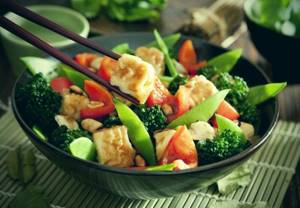
The Japanese diet is recommended for nursing mothers only when the child has almost completely switched to solid food
Malysheva's diet
The diet is based on the principle of consuming a minimum amount of calories, reducing protein and salt intake. Fats of animal origin are completely excluded, only vegetable fats are consumed . The diet is designed for 24 days, 4 of which are fasting days, they consist entirely of cereals: buckwheat and rice. Meals 5 times a day. The main thing in this system is not to feel hungry.
Nutrition according to the Malysheva system provides the following rules:
- Skipping recommended meals is prohibited.
- You can eat no more than a glass of food at one time.
- You need to drink a lot - from two liters of water per day.
- Ideally, it is better to avoid salt.
- Refusal of animal fats.
System minus 60
This diet can be recommended for women who are breastfeeding . It involves consuming a variety of natural products. It is important to gradually enter into a diet and control your condition. Lactation should already be established. When compiling a diet, be sure to take into account the foods that are allowed and prohibited during the feeding period.
Diet principles:
- Be sure to have breakfast.
- You can eat any food for breakfast until 12 noon.
- The last meal is very light and no later than 6 pm.
- Moderate consumption of salt and sugar is allowed; it is better to use brown sugar.
- Snacks are not advisable.
- There is no need to spend fasting days.
Kremlin diet
The basis of this diet is minimal carbohydrate consumption. Their limitation leads to the use of energy reserves located in fatty tissues. In eight days of this diet you can lose up to 5 kg; in a month and a half you can lose 15 kilograms. Potatoes, bread, sugar, rice are prohibited. In the first two weeks, fruits, juices, and vegetables are also prohibited.
It is allowed to eat meat, fish, cheese, and vegetables that do not contain starch. The amount of protein and fat in this diet is not taken into account, so you can consume them frequently. But overeating is strictly prohibited. The Kremlin diet during breastfeeding is allowed if your baby is three months old.
Proper nutrition while breastfeeding
A healthy diet includes [3]:
- At least 5 servings of a variety of fruits and vegetables per day, including fresh, frozen, canned and dried fruits, and no more than one glass (150 ml) of 100% juice without added sugar.
- A large amount of fiber from whole grain bread and lentils.
- Protein found in lean meats and chicken, fish, eggs, nuts, seeds, soy products and legumes. A minimum of two servings of fish per week is recommended, including some oily fish [2].
- Dairy products (milk, cottage cheese, kefir, cheese and yogurt) - they contain calcium and are an additional source of protein.
- Non-dairy sources of calcium that are suitable for vegetarians include tofu, rye bread, legumes and dried fruits.
- Porridges from various cereals and potatoes are sources of carbohydrates.
- Drink plenty of fluids (clean water and skim milk - at least 2.5 liters per day).
Healthy snack options for nursing mothers
- Fresh fruits.
- Sandwiches with salad, grated cheese, salmon.
- Yogurts.
- Hummus with bread or vegetable sticks.
- Ready-to-eat dried apricots, figs or prunes.
- Vegetable and bean soups.
- Unsweetened breakfast cereals, muesli and other whole grain cereals.
- Dairy drinks or a glass of natural fruit juice without sugar.
- Baked potato.
The right way out of any diet: how to maintain the results achieved
Most diets are based on severe food restrictions. If you simply return to your usual diet, the lost kilograms will quickly return. There are several general principles on how to properly exit any diet:
- It is better to start meals with light salads.
- The amount of vegetables and fruits consumed gradually increases.
- It is preferable to consume boiled vegetables at first.
- Gradual increase in lean varieties of meat and fish.
- Meals 5 times a day in small portions.
- The period for exiting the diet is 1–2 weeks. Then you need to switch to a healthy diet.
- The longer the diet was, the smoother the exit from it should be.
Authorized Products
A balanced diet includes a wide range of foods. Some of them can be consumed in large quantities, and some only in limited quantities:
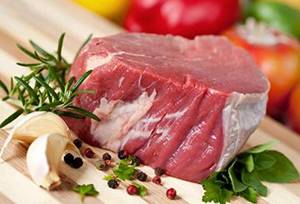
- Meat (chicken, beef, veal, turkey).
- Fish (white, lean).
- Eggs - can be eaten as an omelet or hard-boiled (no more than three times a week).
- Oil – 20-30 grams of butter and 30-40 of corn, sunflower or olive per day.
- Dairy products - mainly cottage cheese, fermented baked milk, sour cream. Use kefir with caution.
- Bread white and black. It is not recommended to consume baked goods and loaves.
- Porridge - any kind, but be careful with oatmeal and rice.
- Vegetables and fruits. In the first weeks, it is recommended to eat only green ones, avoiding red ones.
- Cookies - dry bread, crackers without raisins, low-fat crackers. All other baked goods are not recommended.
- Sweets - marshmallows, marshmallows, marmalade (all in small quantities).
These products should be present in the diet on an ongoing basis, because they provide all the necessary nutrients that the baby receives through mother's milk.
In the first half of the day you should eat heavier food, and in the evening - light food.
Contraindications for diets
There are quite serious contraindications to the use of diets. Before starting any diet, you need to consult a nutritionist: it should be selected specifically for your body, taking into account its characteristics.
Nutritionists do not recommend losing weight to teenagers, pregnant and lactating women, and women during menopause.
In addition, the diet is contraindicated for people:
- for diseases of the gastrointestinal tract;
- for diabetes mellitus;
- for oncology;
- during exacerbation of chronic diseases;
- after surgical operations.
How can a nursing mother lose weight without dieting?
To lose a few kilograms after childbirth, you don't have to go on a diet. When breastfeeding, by the end of the child's first year of life, most women return to their previous shape. Of course, a woman should follow the principles of a healthy diet: do not abuse simple carbohydrates, do not overeat. It is also recommended to exercise 15 minutes a day.
After giving birth to my first child and breastfeeding him for up to a year, the extra pounds went away on their own, without any problems. The second child appeared after 4 years and 5 months; he was breastfed for more than a year. The weight gained during the second pregnancy came off more slowly. I didn’t resort to special nutrition systems, but I tried to skip one or two meals a day (not every day, of course), and arranged fasting days 1-2 times a week. I did all this after the child began to receive complementary foods, and breast milk was no longer his main diet. Gradually I returned to my 62 kg, after giving birth I weighed 73 kg. So, with a reasonable approach, a diet during breastfeeding will not hurt.
General rules of diet
Any diet, as well as the use of medications, must be approved by a doctor.
It is he who will tell you which products should be excluded in a particular case, and which ones to pay special attention to.
It should also be taken into account that with low glucose levels in the body, the amount of milk decreases. Therefore, you should eat sweets in small quantities.
All new products are introduced in the morning so that the mother can monitor the baby’s reaction to them throughout the day. If all is well, then each new portion is doubled until the norm is reached. You can introduce no more than one new product per week.
You should not focus on excess weight in the first months after childbirth. The body returns to normal on its own if a woman eats right. Most return to their previous weight within a couple of months after giving birth, but some require additional help.
Of course, there are no specific diets for nursing mothers - everything is individual and is calculated primarily based on the needs and capabilities of the baby. But, even if a woman has decided to seriously limit herself in the consumption of certain foods, it is worth remembering that not only diet, but physical exercise will help restore her previous slimness. A combination of a balanced diet and exercise will allow mothers to look great at any age.






